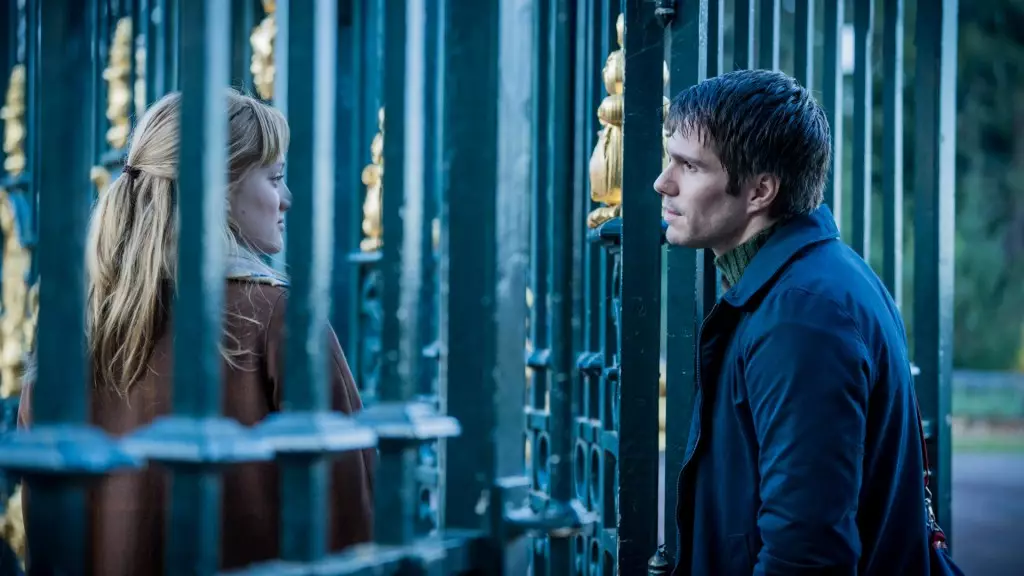The world of cinema often juxtaposes art with the intricate dance of commercial viability. Amidst this landscape, Goodfellas has unveiled an exciting lineup for their 2025 French-language slate just in time for the Unifrance Rendez-Vous, a celebrated gathering that showcases the best in French film. This year’s offering teems with noteworthy productions, ranging from enticing newcomers to seasoned directors, reflecting a rich tapestry of narratives that engage both contemporary audiences and critics alike.
Among the most anticipated projects is the emerging film “An Affair,” directed by the acclaimed Arnaud Desplechin. Having recently concluded his exploration of the character Paul Dédalus with “Filmlovers!” set to hit the cinemas soon, Desplechin now turns his lens toward a poignant narrative revolving around love, loss, and identity. The casting of rising talents such as François Civil and Nadia Tereszkiewicz alongside distinguished veterans, including Charlotte Rampling, allows for a potential explosive chemistry on screen. The storyline’s focus on a protagonist returning to his homeland ignites themes of nostalgia and reconciliation, hinting at an emotionally charged cinematic experience.
Another fascinating project making waves is “Prime Rush,” marking the directorial debut of Carlos Abascal Peiró. This high-stakes political dramedy, featuring an impressive lineup of actors like François Cluzet and Karin Viard, promises to delve into the intricate world of political maneuvering. The film’s premise centers on family dynamics and personal ambition, highlighting a young man’s desperate attempt to secure his estranged father’s political legacy while grappling with the moral dilemmas it entails. The film’s political backdrop, particularly relevant in a France under the specter of rapid governmental changes, positions it to resonate deeply with contemporary socio-political discourse.
Goodfellas’ presentation is further enriched by a plethora of unique films, including “Oxana,” directed by Charlène Favier. This biographical narrative promises to shed light on the life of a feminist icon, Oxana Chatchko, unraveling a story that traverses themes of feminism, identity, and activism. By choosing to focus on real-life figures, “Oxana” is expected to provoke critical discussions around social movements and personal sacrifice within a cinematic format.
Hassan Guerrar’s “Barbes, Little Algeria,” another striking piece from Goodfellas’ slate, embarks on a journey of cultural rediscovery during the pandemic—a timely exploration for our contemporary audience. By navigating the experiences of a tech executive reconnecting with his roots, Guerrar blends the life-affirming elements of personal history with societal commentary, offering a fresh take on identity amidst crisis.
Star-Studded Collaborations and Creative Partnerships
The anticipation of this year’s Unifrance Rendez-Vous is amplified by the presence of international titles expected to gain traction within the festival circuit. Projects like “Morte Cucina” by Pen-Ek Ratanaruang and “The Carpenter’s Son,” featuring Nicolas Cage, symbolize the global foothold of French cinema, as they venture into thematic realms rarely seen in mainstream narratives. The collaboration among diverse talents boosts opportunities for cross-cultural dialogues, inviting broader audiences to engage with these works.
Additionally, the upcoming slate embraces the essence of mentorship and continuity within the French cinema landscape. The participation of well-established directors, such as the Dardenne brothers with “Young Mothers,” signifies a blend of old and new, assuring audiences that unique, impactful storytelling will continue to thrive.
As we approach the Unifrance Rendez-Vous, Goodfellas’ introduction of its 2025 French-language slate stands as a testament to the resilience and creativity present within the cinematic domain. With narratives that intertwine personal journeys with broader societal themes, these films reflect a commitment to exploring the multifaceted aspects of the human experience. The forthcoming year promises not just a celebration of cinema, but an invitation for audiences to connect with diverse stories, reinforcing the role of film as a powerful medium for reflection and understanding in an ever-shifting world. The question remains: how will these narratives shape the discourse around French cinema in the years to come? Only time will tell.

